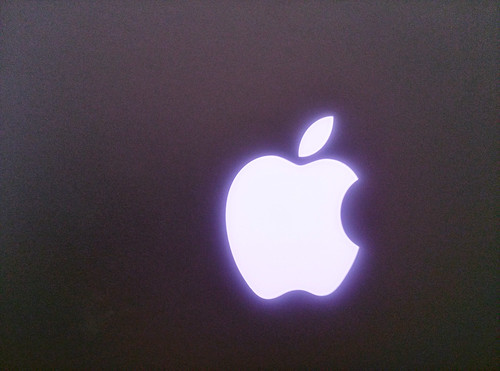As the world's largest publicly traded company, with a market capitalization of roughly $500 billion, it's by no means a stretch to say it takes a lot to move the need for Apple (AAPL 0.18%) these days.
However, there is one looming move that could have major implications for Apple's bottom line – a deal with telecom heavyweight China Mobile (CHL +0.00%) to sell Apple's iPhones to China Mobile's truly massive subscriber base.

The investing community has been tracking this story for years. Recently, there have been a number of signs that this deal could be growing closer by the day, perhaps even as soon as this week.
Repeated signals
Last weekend, advertisements surfaced on China Mobile that showed the telecom giant started accepting preorders for Apple's iPhones in Shanghai on Dec. 12. This follows what appeared to be another, nearly identical advertisement in the eastern city of Suzhou that surfaced two weeks ago.
According to reports, the advertisements fall short of allowing China Mobile users to preorder Apple's iPhones. Instead, these advertisements allow China Mobile users to reserve a place in line to eventually purchase an iPhone whenever it is finally goes on sale through China Mobile. In other words, these advertisements don't appear to allow China Mobile users to actually preorder an iPhone. But the implication is basically the same, that Apple's uber popular smartphone will be available for China Mobile customers, and soon.
This notion was also further substantiated when The Wall Street Journal reported that a China Mobile customer service representative also confirmed the world's largest telecom provider would begin offering the iPhone in the not-too-distant future. However, as you could expect, both Apple and China Mobile have been officially tight-lipped on the matter.
Why an Apple-China Mobile deal makes sense now
China Mobile is only days away from the rollout of its next-gen 4G TD-LTE network, which will go live on December 18.
The addition for 4G is particularly important to China Mobile in order to revive subscriber growth and to hopefully put an end to its errant experience with 3G.
Years ago, China Mobile selected a relatively obscure 3G wireless standard (TS-SCDMA) as the basis of its 3G wireless network. This proved problematic for China Mobile as relatively fewer handset makers opted to make their smartphones compatible with the standard.
As a result of selecting this obscure standard, China Mobile began losing share to its two smaller counterparts China Telecom and China Unicom, both of whom already sell Apple's iPhone. By adding 4G, China Mobile will essentially be playing catch-up to its two smaller rivals in terms of the next-gen handsets, like Apple's iPhone. High-end devices are important for telecom companies like China Mobile because they push users toward higher-margin, data-rich contracts that can prove a boon to the bottom line.
So how much could China Mobile move the needle for Apple then?
Estimates vary, but many analysts believe that adding China Mobile to its network for telecom partners will likely add well over 10 million iPhone sales for Apple in fiscal 2014.
Morgan Stanley's equity research recently issued a research note estimating that China Mobile could add at least 12 million iPhone sales and as much as $2.40 to Apple's 2014 EPS, although it said the upside from a China Mobile deal could be as high as 23 million iPhone sales. Similarly, Berstein research also recently estimated that China Mobile would drive 15 million incremental iPhone sales in its first twelve months with plenty of upside from there.
The point here isn't to get hung up on specific figures. Rather, it's simply to highlight that the potential Apple-China Mobile deal could prove to have a material impact on Apple's bottom line, and relatively quickly too.
Again, in an age where Apple's financials should increasingly move like an iceberg rather than a speed skater, it's worth reiterating that Apple shareholders stand to gain plenty by signing this deal.
Of course, we're still waiting for official word from Apple and China Mobile. However if the media reports are any indication, this week could certainly be a big one for Apple and its shareholders.






